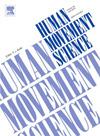Skill level influences the learning of a taekwondo-based serial task
IF 1.9
3区 心理学
Q4 NEUROSCIENCES
引用次数: 0
Abstract
We investigated the influence of skill level on the learning of a new serial task in Taekwondo, along with the underlying aspects of the learning processes. Two groups of Taekwondo athletes, skilled and beginners, practiced a serial task based on basic TKD fighting movements on the first intervention day and were tested for retention in the following day. We recorded temporal elements of the task: response time (RespT), reaction time (RT), movement time (MT), and the time interval between task components (TITC) to analyze performance throughout the acquisition phase and in the retention test, chunking, and the informational aspects related to task performance. Additionally, we investigated online and offline learning processes. Both groups learned the task, but the skilled participants exhibited greater improvements in performance, particularly in the retention test. Best performance of skilled participants appear to be linked to the benefits of chunking in serial tasks. Moreover, skilled participants required less information processing to complete the task, indicating automaticity effects related to chunking. Despite these differences, especially in terms of informational demands, both groups learned predominantly through online learning process. Increasing skill level enhances performance, and influences the learning of new motor skills in a specific sports domain. This advantage may be explained by the superior chunking ability demonstrated by skilled performers, likely resulting from larger experiences within Taekwondo, which facilitated the recombination of previously learned motor skills. The relationship between motor learning and skillfulness warrants further investigation for understanding motor learning itself, but can also assist professionals in organizing practice schedules in sports contexts.
技能水平影响跆拳道系列任务的学习
我们研究了技术水平对跆拳道新系列任务学习的影响,以及学习过程的潜在方面。两组跆拳道运动员,熟练和初学者,在干预的第一天练习了一系列基于基本TKD格斗动作的任务,并在第二天进行了记忆力测试。我们记录了任务的时间要素:反应时间(RespT)、反应时间(RT)、移动时间(MT)和任务组件之间的时间间隔(TITC),以分析在整个习得阶段和在保留测试、分块和与任务性能相关的信息方面的表现。此外,我们还调查了在线和离线学习过程。两组都学会了任务,但熟练的参与者表现出更大的进步,特别是在记忆测试中。熟练参与者的最佳表现似乎与在连续任务中分块的好处有关。此外,熟练的参与者需要较少的信息处理来完成任务,这表明与分块相关的自动化效应。尽管存在这些差异,尤其是在信息需求方面,但两组学生都主要通过在线学习过程学习。提高技能水平可以提高表现,并影响特定运动领域新运动技能的学习。这种优势可以解释为熟练的表演者表现出的优越的分块能力,这可能是由于在跆拳道中有更大的经验,这有助于以前学过的运动技能的重组。运动学习和技能之间的关系值得进一步研究,以理解运动学习本身,但也可以帮助专业人士在运动环境中组织练习时间表。
本文章由计算机程序翻译,如有差异,请以英文原文为准。
求助全文
约1分钟内获得全文
求助全文
来源期刊

Human Movement Science
医学-神经科学
CiteScore
3.80
自引率
4.80%
发文量
89
审稿时长
42 days
期刊介绍:
Human Movement Science provides a medium for publishing disciplinary and multidisciplinary studies on human movement. It brings together psychological, biomechanical and neurophysiological research on the control, organization and learning of human movement, including the perceptual support of movement. The overarching goal of the journal is to publish articles that help advance theoretical understanding of the control and organization of human movement, as well as changes therein as a function of development, learning and rehabilitation. The nature of the research reported may vary from fundamental theoretical or empirical studies to more applied studies in the fields of, for example, sport, dance and rehabilitation with the proviso that all studies have a distinct theoretical bearing. Also, reviews and meta-studies advancing the understanding of human movement are welcome.
These aims and scope imply that purely descriptive studies are not acceptable, while methodological articles are only acceptable if the methodology in question opens up new vistas in understanding the control and organization of human movement. The same holds for articles on exercise physiology, which in general are not supported, unless they speak to the control and organization of human movement. In general, it is required that the theoretical message of articles published in Human Movement Science is, to a certain extent, innovative and not dismissible as just "more of the same."
 求助内容:
求助内容: 应助结果提醒方式:
应助结果提醒方式:


